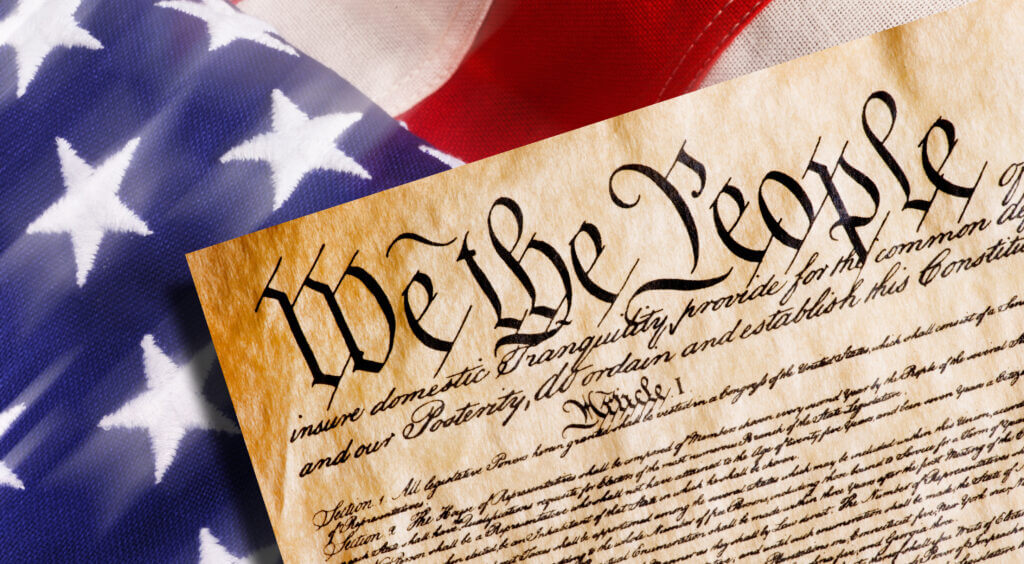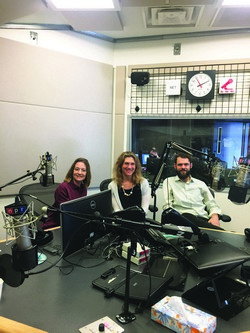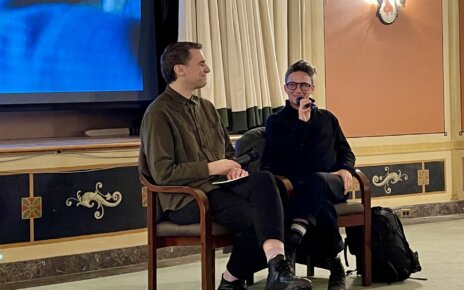The Department of History and Anthropology sponsored a panel discussion about Constitution Day on Friday, Sept. 17. Open to the University Community, the virtual forum surrounded the significance of the U.S. Constitution’s inception in Philadelphia on Sept. 17, 1787, as well as how the panelists view this document from a contemporary perspective.
Melissa Ziobro, MA, Specialist Professor of Publish History, introduced the audience and was the moderator throughout the duration of the event. “We have assembled a panel of Monmouth’s own panel of scholars who will share some historical and contemporary perspectives on the Constitution.”
She added, “In case you are unaware, September 17 is designated as Constitution Day.” By hosting this event, the department hoped to engage in different conversation, all founded in this central theme.
The first panelist was Maureen Dorment, MA, Senior Lecturer and Department Advising Coordinator for the Department of History and Anthropology. Ziobro introduced Dorment’s background, highlighting her class, called ‘Censoring Culture: Banned and Burned in the USA,’ which she used in relation to the first amendment.
Dorment began, “My charge today is to talk about the subject of book banning…A book banner is quasi synonymous with an advocate for censorship across the board.”
The senior lecturer then explained what book banning encompasses. “Book banning could be anything from an attack on a specific book to an attack on a photograph, painting, film, radio, and theatre production.” According to Dorment, booking banning directly concerns the Constitution’s First Amendment, which guarantees freedoms relating to religion, expression, assembly, and the right to petition.
“The first amendment is largely to do with the U.S. government…The idea that the government does not abridge free speech has established, in many ways, a national environment for ideas to proliferate freely,” stated Dorment. However, the point Dorment later reveals is that the country’s reality does not wholly reflect this guarantee, especially in regard to book banning.
Up next was Nicholas Sewitch, J.D., Specialist Professor of Criminal Justice. “My perspectives on the Bill of Rights, especially as a prosecutor, has changed rather dramatically since I left the prosecutor’s office,” started Sewitch. His topic of focus was about the Fifth Amendment.
Sewitch said, “The Fifth Amendment right is the right against self-incrimination, and the reason I feel this is the most compelling and powerful of all constitutional rights because the government conducting an investigation can forcibly and involuntary take about anything from us, so long as they follow the correct procedures.” These procedures include having probable cause and obtaining a warrant.
Sewitch explained that words are one thing the government cannot take away from the American people. While students may believe this amendment right protects from physical coercion, Sewitch had another take. “On its most basic level, it means a person cannot be forced or compelled to speak to the police against their will; it means they can’t be forced to testify on behalf of the government…More than that, if a suspect chooses not to speak to the police, a jury and judge cannot draw any negative inferences from that.”
Lawrence Jones, Retired New Jersey Superior Court Judge and Adjunct Professor of the Political Science and Sociology Department, took the floor. His topic of choice was about presidential pardons.
Jones started, “This became a big issue when we had the last transition of power from the prior president to the current president…This tends to come up every four to eight years because a lot of pardons come about when one president is leaving, and another is coming in.”
He directs the audience to Article 2, Section 2 of the Constitution, noting one specific area where presidential pardons are mentioned. “He shall have power to grant reprieves and pardons for offences against the U.S. except in cases of impeachment,” read Jones. Jones pointed out that there are no specifics about the process for obtaining a pardon, as well as who is qualified to receive.
Jones gave the example of President Richard Nixon, explaining that there was no procedure President Gerald Ford followed in pardoning Nixon from impeachment. Jones’ discussion developed on this question, “Should the presidential pardon be expanded upon in how they are interpreted and laid out in the Constitution itself?”
Following Jones was Christopher DeRosa, Ph.D., Associate Professor and Department Chair of History and Anthropology. He posed the question, “Did the founding fathers actually imagine that the electoral college would elect somebody who lost the popular vote?” This is in connection to the 2016 presidential election.
DeRosa continued, “The political leadership of this country did not really accept that democracy is an animating feature of American, political spirit…But, the answer to the question is a bit flipped because the founding fathers did imagine a popular vote for the president, they just couldn’t get behind it.” DeRosa elaborated that the original intention was for the legislature to elect the president.
Upon further conversation, one prominent member of the Philadelphia Convention suggested that the election is decided by the voters, yet it was determined that voters at this time were too far removed from the presidency to make an informed choice. As pointed out by DeRosa, this process of decision-making was rather volatile. Moreover, the question the founding fathers faced was not about the electoral college vs. the popular vote, but the electoral college vs. Congress.
The last panelist to speak was William Gorman, M.S., Lecturer for the Department of History and Anthropology. Gorman discussed the issue of civics education from a middle school and high school level as a former public-school administrator.
“What I always communicate to my students is that the Constitution is a document with not only their rights, but it has obligations for them, like jury duty,” stated Gorman. “It is an important document that goes to the broader issue of what students know about the system and what curricular requirements are in the country right now.”
According to Gorman, states’ inability to fund ventures that demand students to take their civic education seriously underscores the value, or lack thereof, stakeholders place on social studies education and civic awareness. Gorman concluded, “There is a disconnect between what people think they know and what they actually know.”




